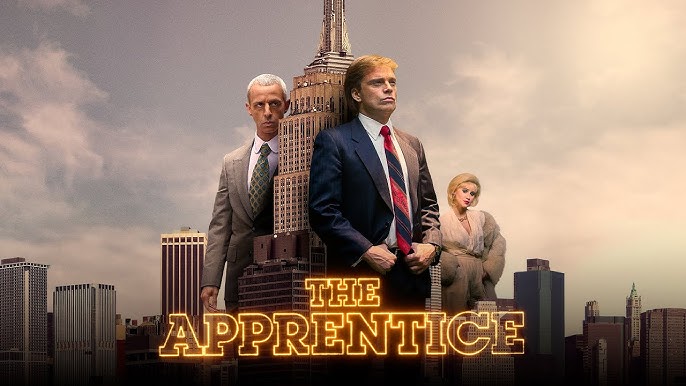The Apprentice Movie: Story, Cast, and Everything You Need to Know
Introduction
The Apprentice is a highly anticipated biographical drama that explores the formative years of former U.S. President Donald Trump. Directed by Ali Abbasi, the film dives deep into the world of ambition, mentorship, and power that shaped one of the most polarizing figures in American history. With strong performances, bold storytelling, and a striking visual style, The Apprentice stands out as one of the most talked-about films of the year.
Plot Overview
Set in New York during the 1970s and 1980s, The Apprentice follows the young Donald Trump as he embarks on his journey to become a powerful real estate mogul. Determined to step out of his father’s shadow, Trump navigates the intense world of wealth, business, and influence. His path crosses with that of Roy Cohn, a ruthless lawyer and political figure who becomes his mentor and guide in the art of power and manipulation.
As the story unfolds, viewers witness how Cohn’s influence transforms Trump’s mindset and business ethics, shaping his approach to ambition and authority. The film portrays the evolution of their complex relationship — from mentorship to manipulation — ultimately revealing how Cohn’s tactics would leave a lasting mark on Trump’s character and career.
Cast and Characters
The film features a talented cast that brings authenticity and emotional depth to the story:
-
Sebastian Stan as Donald Trump — delivering a performance that captures both Trump’s charisma and inner conflict.
-
Jeremy Strong as Roy Cohn — portraying the cunning, influential mentor whose ruthless methods define Trump’s rise.
-
Maria Bakalova as Ivana Trump — offering insight into Trump’s personal life and the challenges within his marriage.
The chemistry between Stan and Strong drives the film’s intensity, creating a powerful dynamic that highlights the mentor-protégé relationship at the heart of the story.
Direction and Cinematic Vision
Director Ali Abbasi approaches The Apprentice with a blend of realism and psychological depth. His storytelling captures not just events but the emotional and ethical transformation of his characters. The film’s visual style mirrors the glamor and grit of New York City during the 1980s, portraying a world where ambition often blurs moral boundaries.
Cinematographer Kasper Tuxen’s use of color and light enhances the film’s tone — rich golds and deep shadows reflect both the allure and corruption of wealth. The score intensifies the emotional gravity, complementing the narrative’s focus on power, loyalty, and betrayal.
Themes and Analysis
The Apprentice goes beyond political biography. It explores universal themes of ambition, identity, and the price of success. The film questions how far individuals are willing to go to achieve power — and what they lose along the way.
The dynamic between Trump and Cohn serves as a symbolic representation of America’s relationship with power, where image often outweighs integrity. It’s a study of mentorship gone awry and the transformation of ideals into strategies for dominance.
Critical Reception and Impact
Although The Apprentice has stirred controversy due to its subject matter, it has been praised for its fearless storytelling and compelling performances. Critics highlight its ability to humanize a public figure while still examining the darker aspects of ambition and influence. The film invites debate but also reflection — a hallmark of powerful cinema.
Conclusion
The Apprentice is more than a political drama; it’s a fascinating exploration of power, mentorship, and the making of an icon. Through its captivating performances and thought-provoking narrative, the film offers a glimpse into the psychological roots of ambition and the moral trade-offs that come with success.
With its rich storytelling and striking execution, The Apprentice promises to be one of the most unforgettable and discussed films of the year — a cinematic journey into how power is learned, shaped, and wielded.
